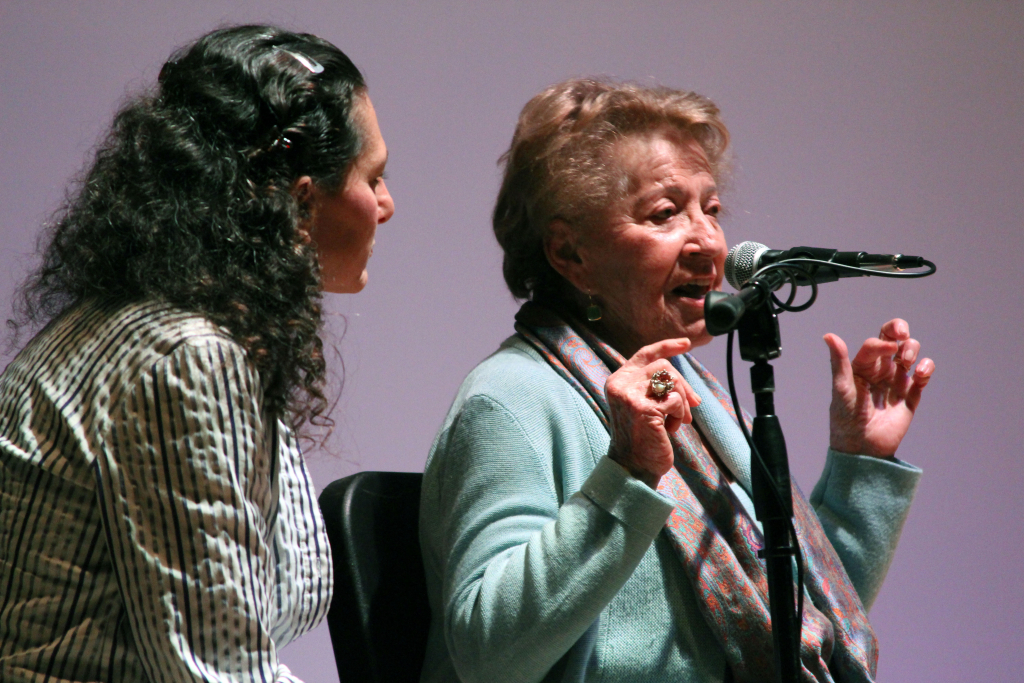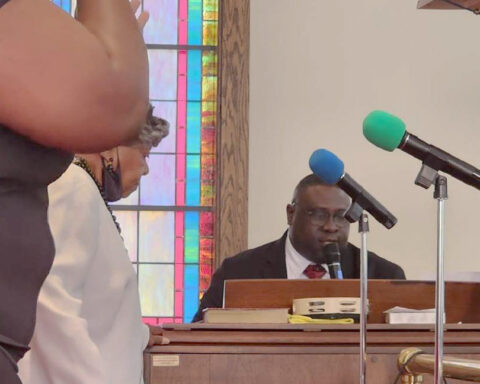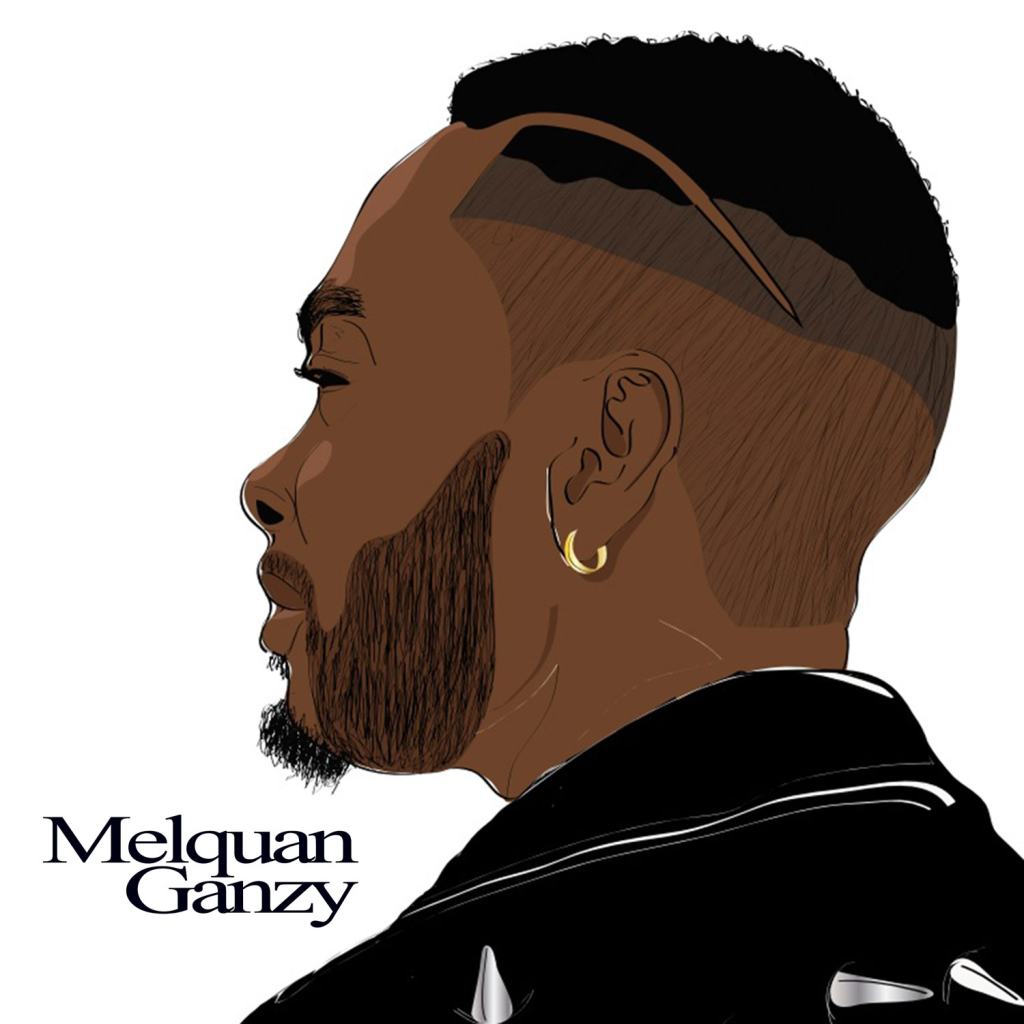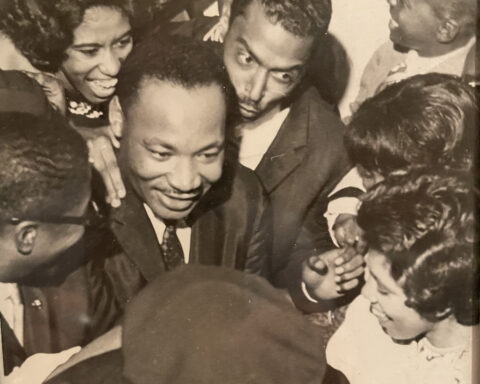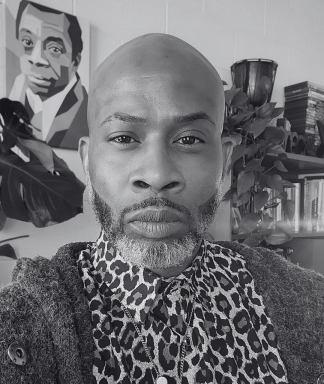Seventy-six years ago, Esther Lederman and her family were forced to leave her home in Lodz, Poland, when the German army invaded her country. Even before the invasion, Lederman’s family, which was Jewish, were informed about what the Nazis were doing to Jews in Germany.
“We heard the rumors about what was going on in Germany,” said Lederman. “It was very hard to believe that a government could treat their citizens the way they did.”
Lederman spoke to N.C. Central University students at the B.N Duke Auditorium on Thursday as part of a junior-senior seminar — called On Survival and Healing — taught by professors Rachelle Gold and Camille Passalacqua. During Lederman’s appearance, three short video clips of Lederman’s life, provided by The Holocaust Speakers Bureau, were shown to students.
Lederman, who lives in Chapel Hill, grew up in Lodz with her mother, her father and her little sister. Her father was a manager at a hardware store, her mother was a dressmaker. Lederman said she had a great life before the Nazis started the Holocaust.
“I did figure skating, and I traveled,” Lederman told the Campus Echo after her presentation. “Everything was wonderful.”
But Lederman’s life changed forever on September 1, 1939, when the Germans invaded Poland. Lederman said the Germans were polite at first. “No one ever anticipated what was going to happen,” said Lederman.
According to the United States Holocaust Memorial Museum website, “The Holocaust was the systematic, bureaucratic, state-sponsored persecution and murder of six million Jews by the Nazi regime and its collaborators.” According to the website, Nazi leader Adolf Hitler viewed Jews as enemies of the German middle and lower classes.
The Nazis forced German Jews to identify themselves by wearing armbands with the Star of David and publicly identified Jewish-owned businesses for all to see. Similar oppressive measures were forced upon Polish Jews.
“They would catch Jews with beards, and they would cut and pull them out,” Lederman said in one of the video clips. “They knew how to hurt, and that was very scary.”
Lederman said the Germans began forcing Jews to live together in ghettoes – in horrific conditions – in December, 1939.
That month, before they would be forced into a ghetto, Lederman and her family escaped to Chmielnik, Poland, where her father’s brother lived and where they felt life would be easier. She said the Jews in Chmielnik didn’t have to wear yellow stars that identified them as Jews, but did have to wear white bands with the blue Star of David. Lederman said the city was overcrowded, and the people lacked food and jobs.
According to Lederman, schools were off limits to Jewish people, so she and some other teenagers tried to keep up with a high school curriculum. She wanted to create a sense of normalcy.
“Textbooks were available because we had them,” said Lederman. “Teachers were available because they were also refugees kicked out of their homes.”
Lederman said she met her future husband, Ezjel Lederman, in that group of students.
Lederman said word was circulating about what was being done to Jews across Poland, specifically that the Germans were evacuating the ghettos and sending Jews to concentration camps.
Lederman’s boyfriend told her to get false identification papers stating that she was Catholic in hopes of keeping her out of the camps.
Because of the rumors, Lederman’s boyfriend told her he and his family were going to go and live with a family they had known for years, the Zals, who hid them in a small farm house on their property.
On Oct. 1, 1942, Lederman recalled, the Nazis ordered women ages 15-40 and men 15-45 to assemble at a Chmielnik marketplace to be sent to labor camps. She and her father went and were chosen to be sent, but a ghetto policeman sneaked Lederman out of the marketplace and told her to go home. Her father was sent to a labor camp.
Lederman went back home to her mother and sister. Her mother suggested she go and find the Zals, where her boyfriend was hiding, to see if they could take the family in.
Lederman found the Zals, but three days later she found out the Nazis had “cleansed” Chmielnik and sent all its residents, including her mother and sister, to the Treblinka extermination camp. Lederman said she never saw them again.
The Zals hid Lederman for almost two years.
The Allies liberated the concentration camps in 1945, ending the Holocaust. Lederman returned to her hometown of Lodz, where she was reunited with her father that year.
NCCU students said they admired Lederman’s strength and described her presentation as inspirational.
“You can tell she is a hard fighter,” said recreation administration junior Nykeia Burris. “Instead of her showing hatred, she shows love to people,”
Pre-nursing sophomore Monique Jones said that Lederman was a strong woman.
“It seems that it would be difficult in itself just to tell the story and relive those experiences,” said Jones. “It is amazing how someone could overcome so much tragedy.”
On Survival and Healing, the course taught by professors Rachelle Gold and Camille Passalacqua, is listed in the Department of Language and Literature. It is open to all students and will be offered again this spring. Videos about Lederman’s life and experience are available here.

